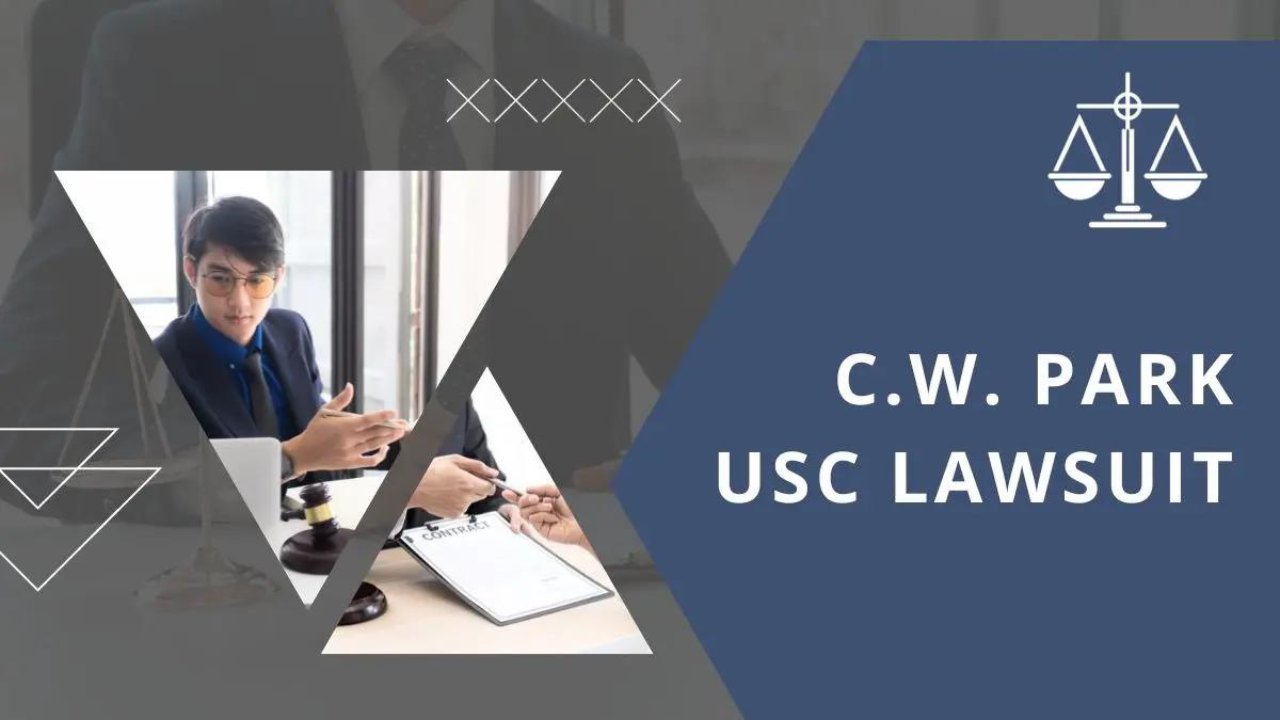C.W. Park USC Lawsuit: Implications for Student Rights and Academic Freedom

In the context of higher education, the quest for understanding and academic freedom has always held a hallowed place. Universities are meant to be the fertile soil where diverse ideas, thoughts, and opinions flourish, fostering an environment where students can challenge the conventional and embark on intellectual explorations. However, a recent lawsuit involving C.W. Park and the University of Southern California (USC) has sparked a robust debate around student rights and academic freedom.
The Background of the C.W. Park USC Lawsuit
Before we dive into the heart of the matter, it’s crucial to grasp the context of the C.W. Park USC lawsuit. C.W. Park, a graduate student at USC, found himself entangled in a legal battle with the university after expressing opinions that some found controversial. Park’s case stands as a quintessential example of how the intersection of freedom of expression and institutional policies can lead to lawsuits that send ripples through the academic community.
C.W. Park USC Lawsuit and Student Rights
Student rights and academic freedom are the bedrock principles in any institution of higher learning. These principles are inherently intertwined, with academic freedom empowering students and faculty to explore a multitude of ideas, even those that challenge established norms. However, these freedoms must be balanced with the responsibilities they entail, ensuring that students’ rights do not infringe on the rights of others or disrupt the educational environment.
The Legal Battle in the C.W. Park USC Lawsuit
Park’s lawsuit against USC, often referred to as the C.W. Park USC lawsuit, raises a fundamental question about where to draw the line concerning academic freedom and free speech. The legal proceedings in the C.W. Park USC lawsuit were closely scrutinized, unveiling the intricate complexities surrounding the issue. It’s a tale of one student’s unwavering determination to defend their right to express their views while the university sought to maintain a campus environment that fosters learning and inclusivity.
Implications for Higher Education in the C.W. Park USC Lawsuit
The C.W. Park USC lawsuit carries substantial implications for the broader higher education landscape. It compels us to critically examine how universities handle contentious opinions and what measures should be taken when a breach of conduct is perceived. This case raises questions about whether students should be held accountable for their off-campus actions, particularly at a time when social media can significantly affect personal views.
Balancing Act: University Policies vs. C.W. Park’s Rights
Striking a balance between university policies and the rights of individuals like C.W. Park is a formidable challenge. While universities must uphold the principles of academic freedom, they are also tasked with the responsibility of ensuring a safe and inclusive environment for all students. Achieving the proper equilibrium between these often conflicting interests is of paramount importance.
The Role of Free Speech in the C.W. Park USC Lawsuit
The case, known as the C.W. Park USC lawsuit, also underscores the pivotal role of free speech in academia. Universities must protect and promote free speech while simultaneously establishing guidelines for maintaining decorum and respecting the rights of others. This delicate balancing act lies at the core of the C.W. Park USC lawsuit.
Impact on USC’s Reputation due to the C.W. Park Lawsuit
The C.W. Park USC lawsuit has undoubtedly left its mark on USC’s reputation. The university found itself embroiled in a public relations battle, with its handling of the case under intense scrutiny. This case serves as a reminder of how swiftly a university’s reputation can be tarnished in the age of viral social media and instant news coverage.
A Closer Look at Academic Freedom in the C.W. Park USC Lawsuit
One essential component of higher education is academic independence. Allowing scholars and students to engage in intellectual pursuits without the fear of censorship or retribution. The C.W. Park USC lawsuit prompts a closer examination of what academic freedom truly means in a modern, interconnected world.
How the C.W. Park USC Lawsuit Relates to Other Universities
The case, often dubbed the C.W. Park USC lawsuit, resonates across other universities. It has sparked discussions about how different institutions handle similar situations and whether there should be a more standardized approach to dealing with controversies involving student expression.
The Power of Social Media in the C.W. Park USC Lawsuit
The influence of social media in this case, known as the C.W. Park USC lawsuit, cannot be underestimated. Park’s opinions gained widespread attention through various online platforms, amplifying the situation and sparking a broader discussion about the responsibilities of universities in the digital age.
Legal Precedents and the C.W. Park USC Lawsuit
The lawsuit, often referred to as the C.W. Park USC lawsuit, has the potential to establish legal precedents that could shape future cases involving student rights, free speech, and academic freedom. Courts may look to this case for guidance in determining the boundaries of these principles.
The Verdict and Consequences in the C.W. Park USC Lawsuit
As the legal battle in the C.W. Park USC lawsuit unfolded, it eventually culminated in a verdict. The outcome of this case and its consequences serve as a testament to how universities navigate the intricate terrain of student rights and academic freedom.
Lessons Learned from the C.W. Park USC Lawsuit
The C.W. Park USC lawsuit offers a unique opportunity for universities and students to reflect on the lessons learned. http://www.examsnap.com It serves as a reminder that while academic freedom is a cherished ideal, it must coexist with responsibilities and respect for the rights of others.
Conclusion
In conclusion, the C.W. Park USC lawsuit has ignited a significant debate about student rights and academic freedom. It serves as a stark reminder of the challenges universities face in striking a delicate balance between these fundamental principles while maintaining a safe and inclusive campus environment. The landscape of higher education is changing in the digital age. This case is likely to have a lasting impact on how universities address controversies involving free speech and expression.
